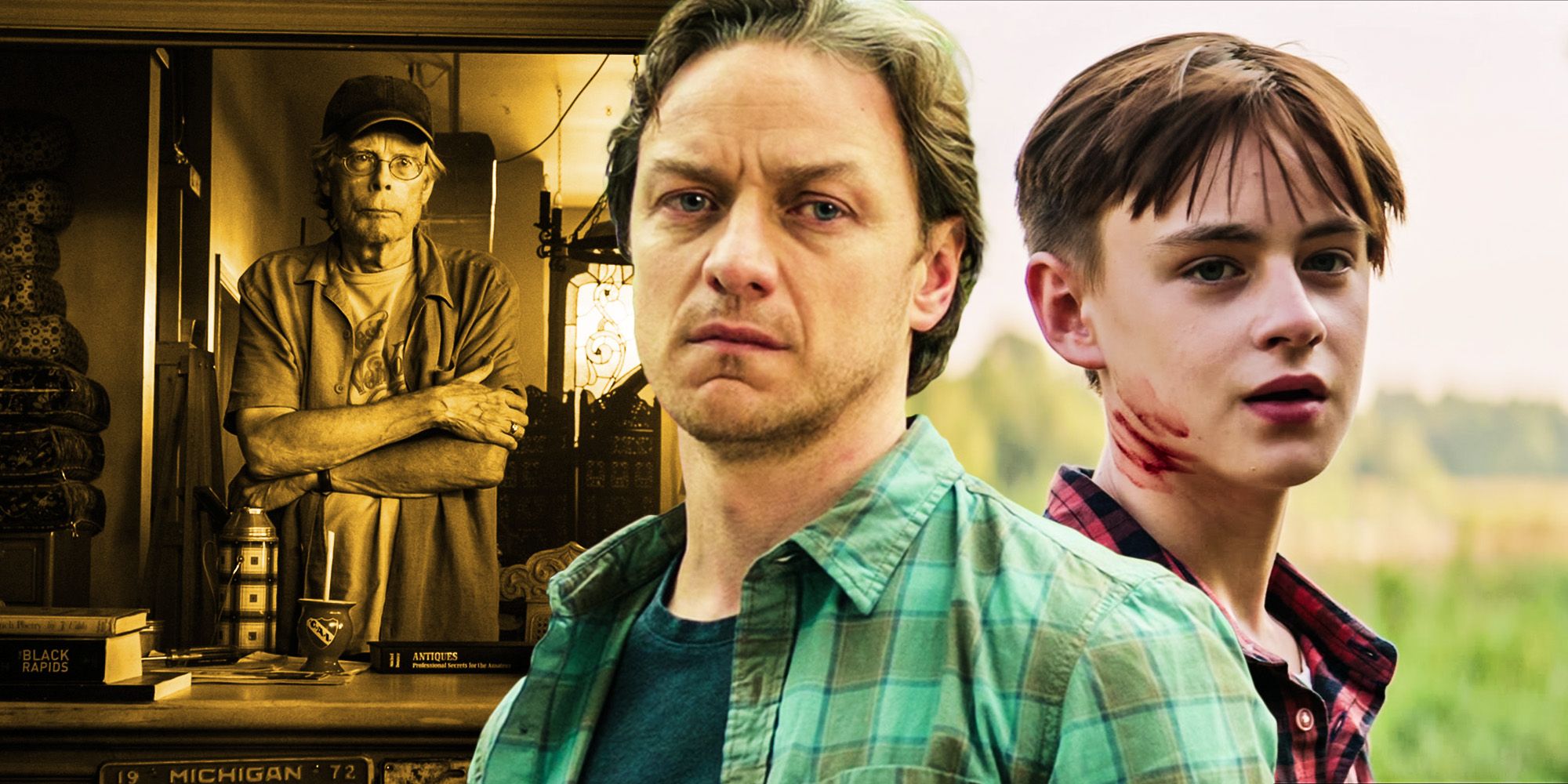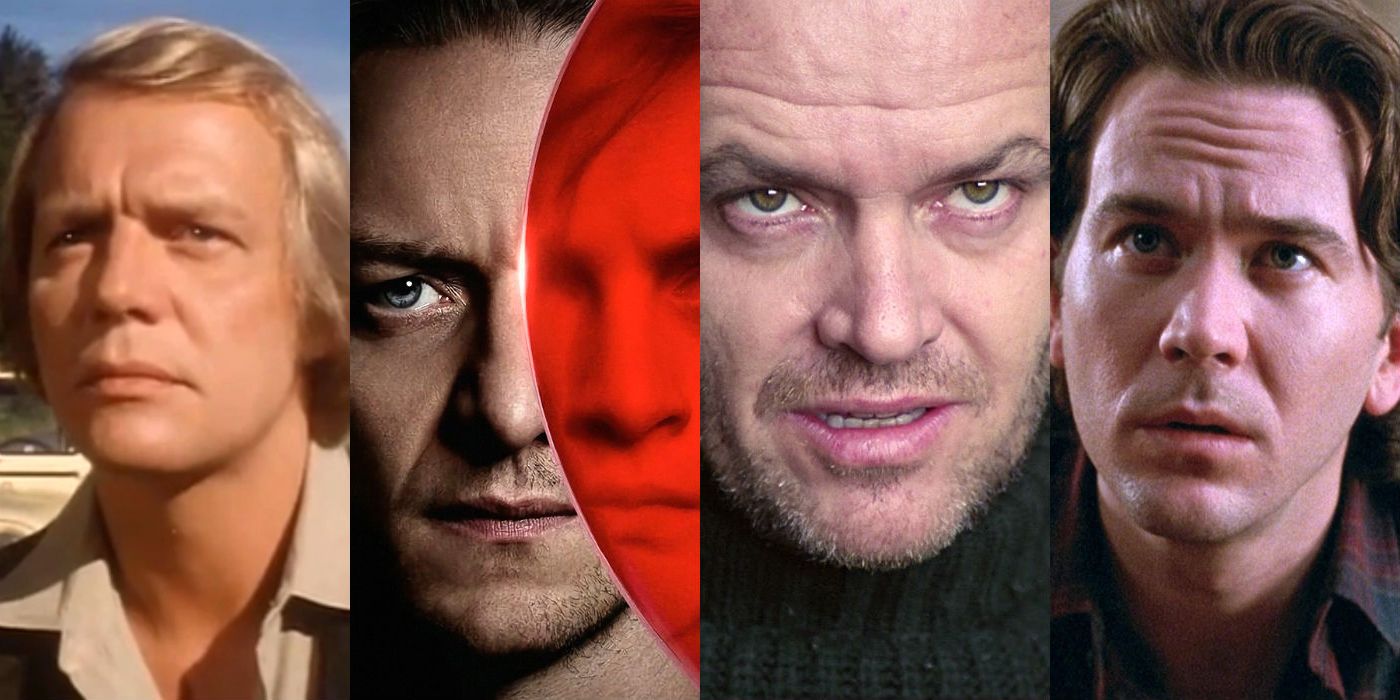Stephen King’s stories are surrounded by theories on their real meaning, the origins or fate of some characters, and even the inspirations behind them, and one particular IT theory claims Bill Denbrough is actually Stephen King. The King of Horror has terrorized generations of viewers for decades with his novels and short stories, and one of his most popular and successful works is the novel IT, published in 1986. IT has received a lot of praise from critics and readers over the years, and naturally, it has also made way for a variety of theories.
IT takes the audience to Derry, Maine, to meet a group of kids self-named “The Losers Club”, who come across an evil, shapeshifting entity they refer to as “IT”. This creature awakens every 27 years to feed, and it does so to feed off the fears of its victims, for which it takes the shape of its targets’ biggest fears, though its preferred one is that of Pennywise, the Dancing Clown. IT is split into two parts: the first one set in 1957, following the Losers as kids, and the second one set in 1985, following the adult Losers as they reunite one final time to defeat IT. Leading the group in both time settings is Bill Denbrough, who serves as the main character of the story.
Bill Denbrough is the one who led the fight against IT as Pennywise killed his younger brother, Georgie, which haunted Bill for years. Bill went on to become a successful writer and he married an actress, Audra Phillips, who almost became one more victim of IT. Bill Denbrough is one of Stephen King’s most popular and acclaimed characters, and one theory suggests that Bill and King are actually one and the same.
IT Theory: Stephen King Is Bill Denbrough
A theory posted on Reddit suggests Stephen King and Bill Denbrough are the same, and they do have some similarities, such as both going through some truly traumatizing events at a young age (when King was a child, he apparently witnessed one of his friends being struck and killed by a train), both being born in Maine, and, of course, both becoming successful authors. However, the theory quickly becomes hard to believe as the author goes on to explain that IT is also a real story, and it was King’s way of warning the world of this horrible shapeshifting creature and preparing for its awakening in 2011 and 2038. The author even suggests that a real Ben Hanscom helped King recollect their memories of their encounters with IT, and just like in the novel, their memories about the creature started to fade as they got older and moved away from Derry.
Other Stephen King Characters Based On Himself
The theory about Stephen King and Bill Denbrough being the same is believable when it comes to King using his own experiences in his novels and adding bits of himself to his characters, but the rest of it definitely doesn’t fit. However, Bill Denbrough isn’t the only character from the Stephen King universe that is partly based on King’s personality, experiences, struggles, and more, and curiously enough, most of those characters are all writers as well. Some of Stephen King’s characters based on himself are Salem’s Lot Ben Mears, Misery’s Paul Sheldon, The Tommyknockers’ Jim Gardener, The Dark Half’s Thad Beaumont/George Stark, Secret Window, Secret Garden’s Mort Rainey, Desperation’s Johnny Marinville, Bag of Bones’ Mike Noonan, The Road Virus Heads North’s Richard Kinnell, Lisey’s Story’s Scott Landon, and of course, The Shining’s Jack Torrance.
Each of them represents different parts of King's life and career, such as Thad Beaumont and his pen name "George Stark", just like King writing under the name "Richard Bachman"; Paul Sheldon's desire to move on from the books he was famous for was a reaction to the backlash King received for the fantasy novel The Eyes of the Dragon; and Jack Torrance's struggles with addiction were also a reflection of King's own problems.
It’s true that IT’s Bill Denbrough has some inspiration from Stephen King’s life, so it could be said they are the same to an extent, though not quite literally as in the above-mentioned theory. Stephen King has been through a lot, and he has channeled some of his biggest traumas, experiences, and struggles into some of his most famous characters and stories, which only make them more complex and interesting.



